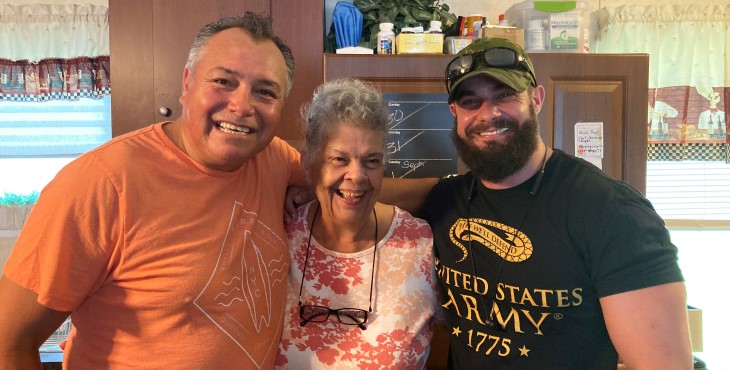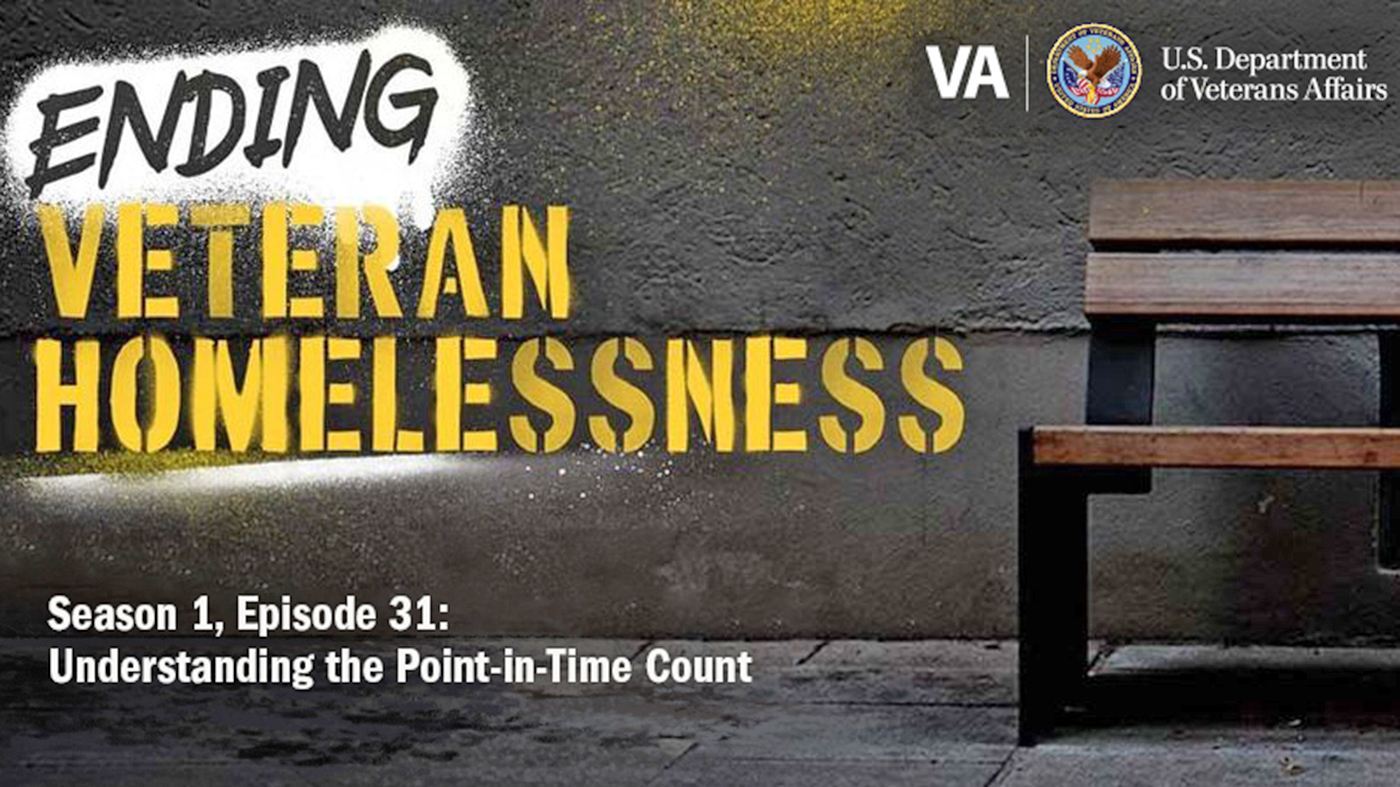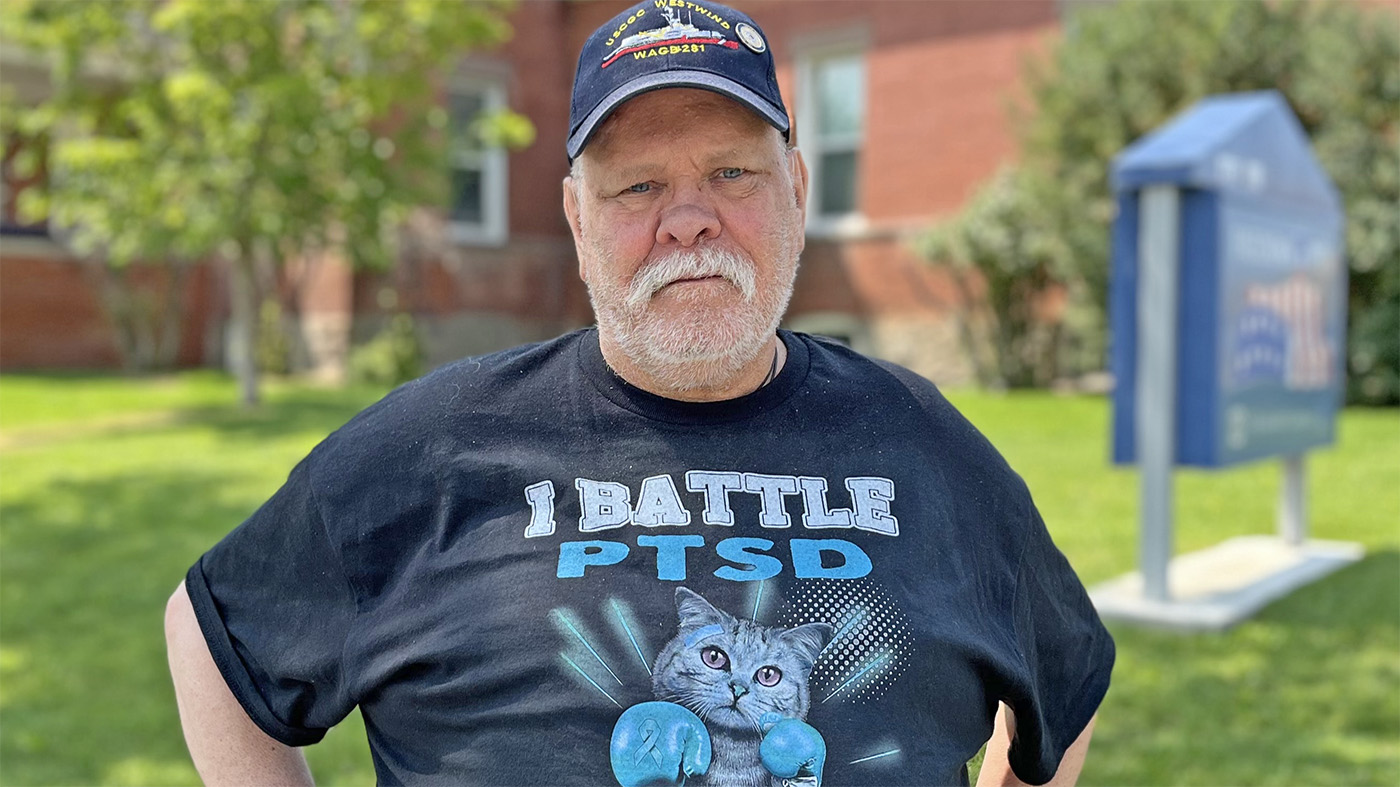When Army OIF Veteran Casey Gauthier entered the Housing and Urban Development-VA Supportive Housing (HUD-VASH) program in Biloxi, Mississippi, in 2017, he was homeless. He had a small income, no job, numerous legal issues, and he was estranged from his family. Post-traumatic stress disorder (PTSD) had contributed to substance abuse problems, which ultimately led to a need for special psychiatric care before entering HUD-VASH.
HUD-VASH is a collaborative program that combines HUD housing vouchers with VA supportive services to help Veterans who are homeless.
When Gauthier was admitted to the program, he was connected with Kamero Haverstic, who became his HUD-VASH case manager. Gauthier’s acceptance into the program – while he was still receiving psychiatric care – helped kick-start a turnaround in his life. He was immediately rehoused in a location where he felt he could remain sober and focus on getting better. Having his own place made it easier for him to take advantage of the supportive services available to him, which helped him develop a clearer perspective of where he wanted to be in life.
“The [HUD-VASH] program gave me time and energy to focus on my PTSD appointments and other group sessions,” said Gauthier. “It gave me time to readjust and fully understand what I was dealing with.”
Transitional Work Experience Program leads to full-time employment
Gauthier’s case managers and peer support system at the Gulf Coast Veterans Health Care System got him into the Transitional Work Experience (TWE) program, which provides participants with structured vocational rehabilitation activities and assigns them to therapeutic work placements for six months to a year. Participants also receive case management to help them gain and enhance their employment skills and find and maintain competitive employment.
Through the program, Gauthier obtained full-time employment with VA in a laundry facility in 2019. He was recently promoted to a leadership position in the facility in recognition of his work.
“When I met Casey, he was really struggling, and I think HUD-VASH gave him time to connect to the community and made him realize he could work through his issues,” said Haverstic. “He was in despair. I am very proud of him.”
Gauthier now has a permanent home, a driver’s license, a clean record and his own car. He commutes from his home in New Orleans every day to work in Biloxi. He has also reconnected with his family and is sober thanks to help from his case manager, support system and the HUD-VASH program.
“There is hope. I went from having warrants and no driver’s license to having a high credit score, driver’s license, and car,” said Gauthier. “You just have to put the work in to better yourself.”
More Information
- Learn about the HUD-VASH program and enrollment eligibility at gov/homeless/hud-vash.
- Veterans who are homeless or at risk of homelessness should contact the National Call Center for Homeless Veterans at 877-4AID-VET (877-424-3838).
- For regular updates and stories like these, subscribe to receive the Homeless Programs Office monthly newsletter.
- Learn about the Biloxi VA Medical Center.
Eileen Burke, LCSW, is the assistant homeless program manager at the Gulf Coast Veterans Health Care System in Biloxi, Mississippi.
Topics in this story
More Stories
William Snow, senior program specialist at HUD, explains how the Point-in-Time Count provides valuable data on Veteran homelessness.
VA permanently housed 47,925 homeless Veterans in fiscal year 2024, exceeding its goals for the third year in a row.
VA Housing First changed the life of Grady Kendall, Coast Guard Veteran, because it was there when life knocked him down.





